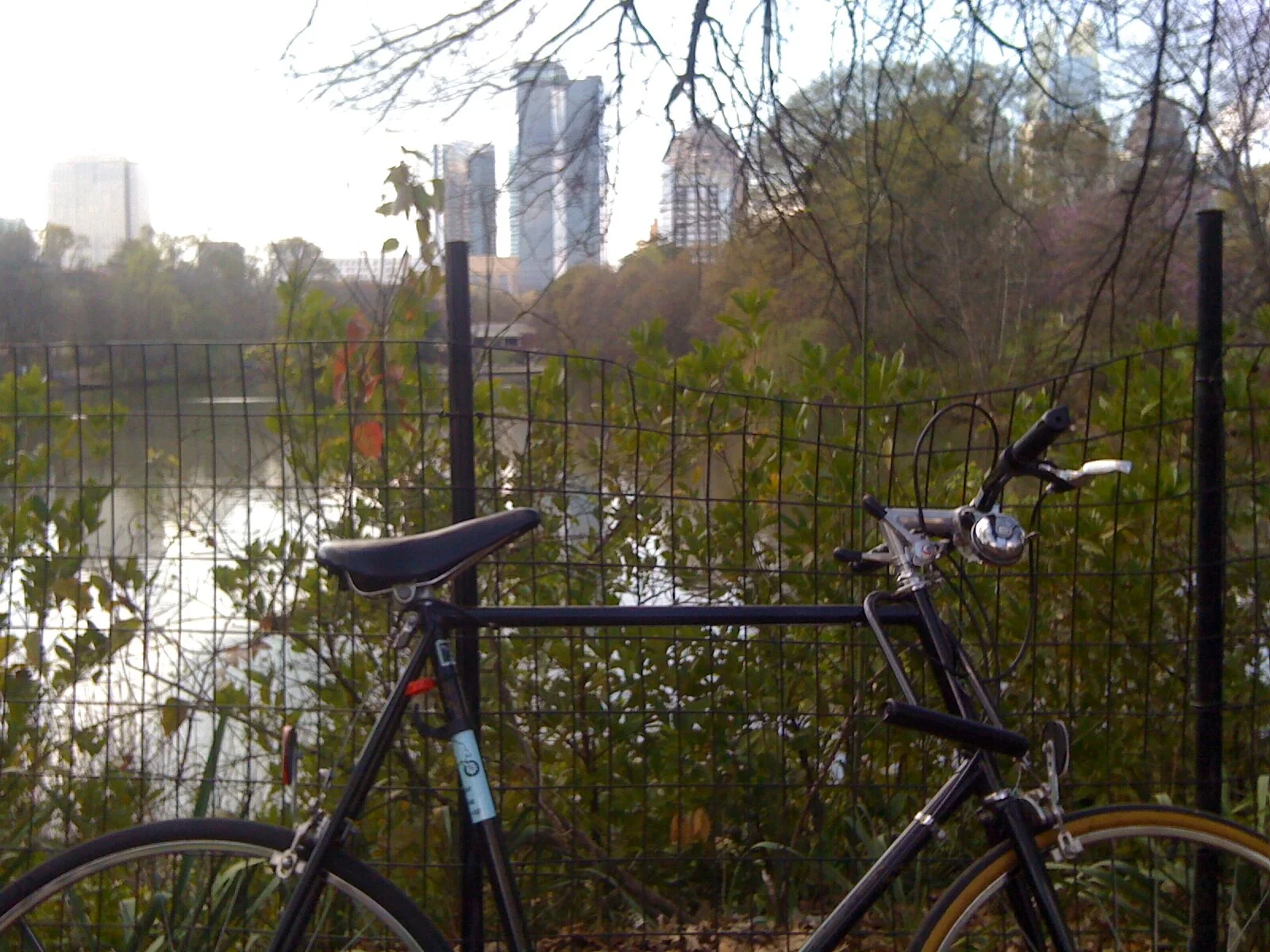dam
Signs clung to the chainlink fence like monarch butterflies, bearing words like WARNING and CAUTION and AVISO. There were exclamation marks trapped inside triangles, and a hapless clip-art silhouette thrown back by his nemesis, the lightning bolt. Beyond the fence, the Leesville Dam spanned the slender throat of a manmade lake. It was a somber fortress of tear-streaked concrete with turrets of scaffolding surrounding machinery that looked like an industrial Play Place. It was also, Google Maps insisted, the most direct route to my destination.
If I could cross here, I had 20 miles to go. But if I couldn’t, I’d have to backtrack 11 miles just to get to the next river crossing — not to mention the climb back up the steep, winding hill I had just descended as slowly and cautiously as an octogenarian walking down a flight of stairs.
A light breeze rattled the bare branches of the trees and ruffled the surface of the water, sending up the flat, metallic smell of river. The gate clanked. There was a small white sign to the left, a moth among the monarchs, with a few hopeful words: GATE ACCESS CONTACT NUMBER.
Now, honestly, what’s 11 miles in a 6,000-mile trip? And as for the hill, well, hills are the price you pay to eat pecan pie with whipped cream at 10 a.m. No, the real reason for what transpired was the simple thought: Wouldn’t it be funny if I could convince somebody to open the gate for me?
So I called the number twice; both times it went to this guy Andy’s voicemail. No worries — there was another sign with another phone number, this one for the American Electric Power headquarters. Why not? Like that magical incantation my mama taught me, “Can I speak to your supervisor[1]?”
It took all my schmoozin skills, but not only did I get Andy’s cell phone number, the guy I talked to wished me good luck. Unfortunately, Andy didn’t pick up when I called… nor when I called again. So naturally, I texted him:
hi Andy! my name’s brooke, and I’m biking cross-country. google routed me to your dam… any way you could open the gate so I could bike across?
Then I decided to give it five minutes. In those five minutes, I:
contemplated the logistics of jumping the fence
tried two of my own PINs, as well as 6969, in the keypad
Googled "Leesville Dam gate code" (to my surprise, there were no results)
The time had come. I called Andy’s office. No answer. I called his cell. It rang once, twice, three times, four—
“Hello?” asked a gruff voice.
I couldn’t contain my excitement. "ARE YOU ANDY??"
"Yes," he laughed.
"Andy my man, you are the person I want to talk to. See, I'm trying to bike to Seattle, and Google Maps routed me over your lovely dam, but your lovely gate is blocking my way. Is there any way you'd let me cross? Otherwise, I have to bike 11 extra miles, and I know you don't wanna make me bike 11 whole extra miles. Look Andy, I promise I won't get hurt, and if I do, I double-promise I won't sue, so whaddaya say?"
There was a pause, swollen as a river surging against a set of watertight floodgates.
“Heh-heh, all right, I'll letcha over."
"ANDY YOU ARE A TRUE AMERICAN HERO!!!"
[1] And ohhhh I cannot emphasize enough how important it is to say it nicely. Say it like an entitled bourgeoisie and you are a nightmare. Say it like, “Hey man, I get it, I’m a pain in the ass and this is above your pay grade,” though, and you’re usually golden.






